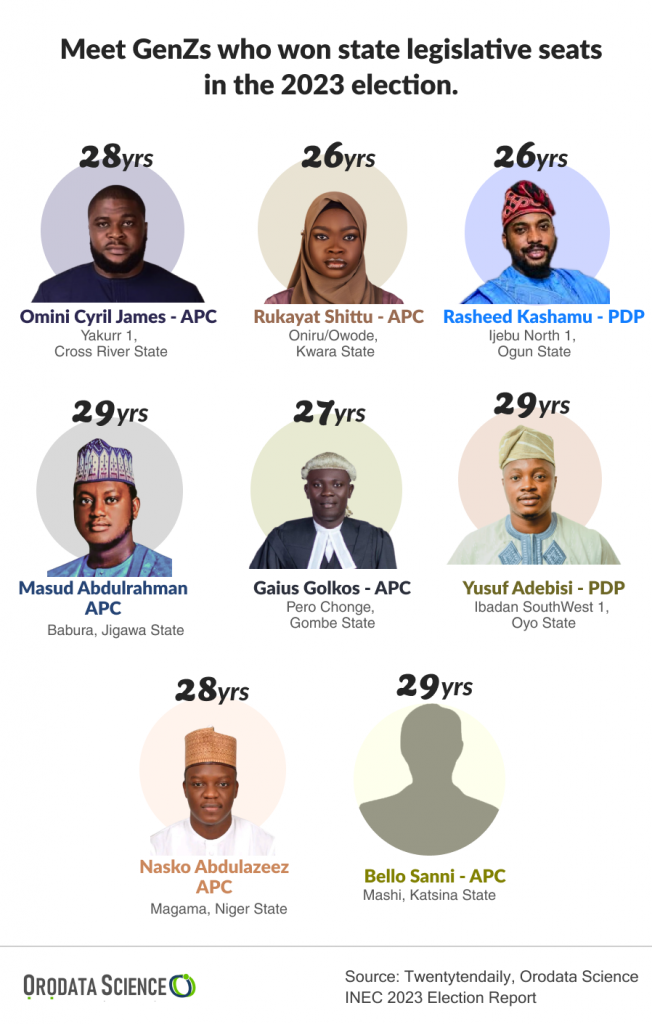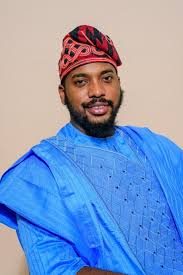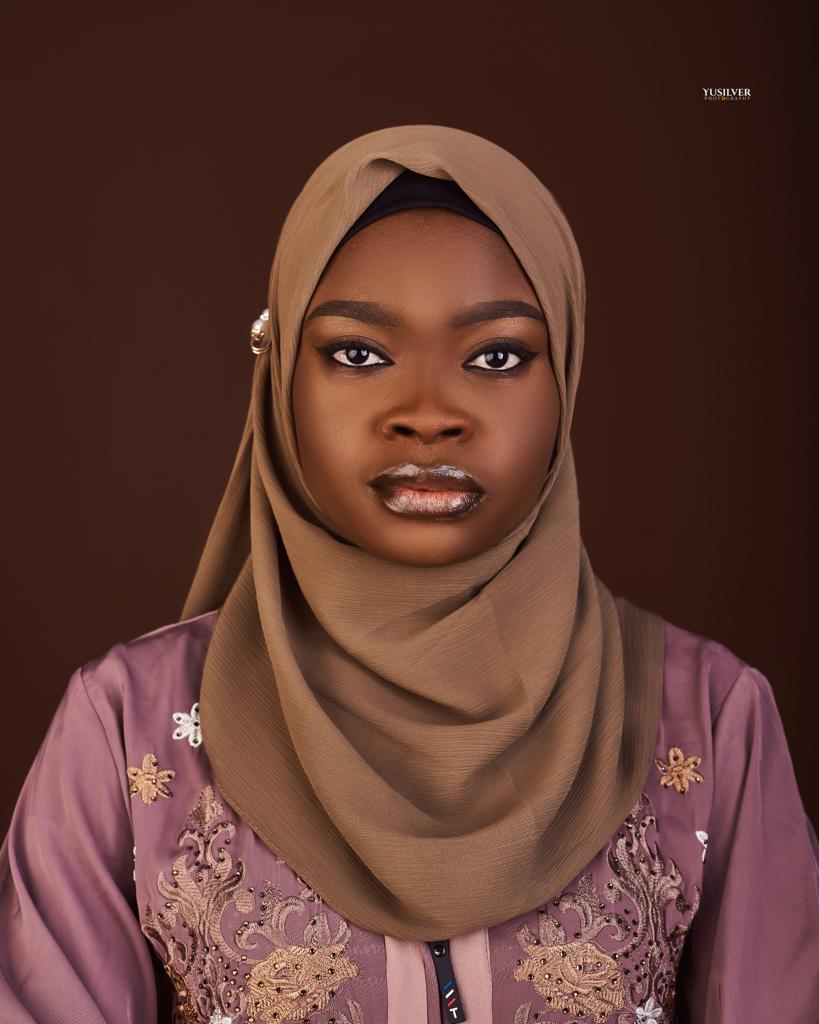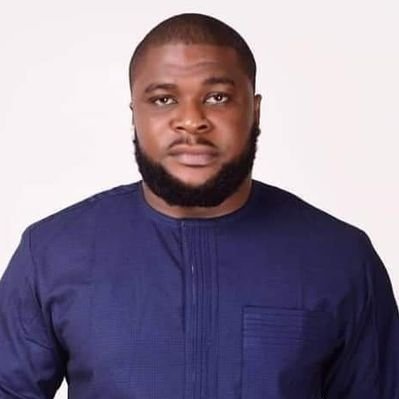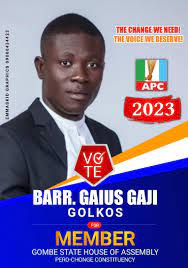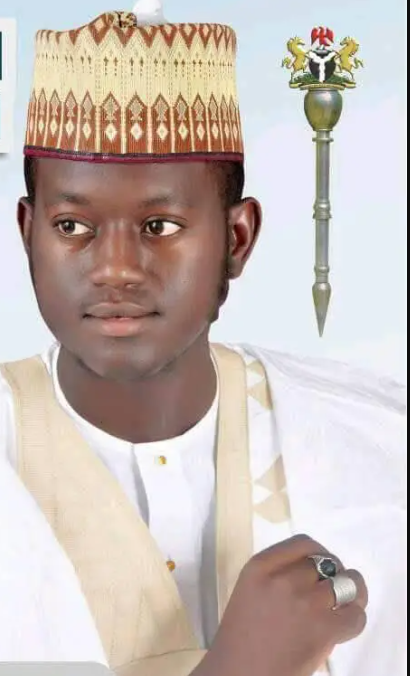Even though Nigeria is one of the top 20 countries with the youngest populations in the world, there is a depressing dearth of young people in political positions across the country. Youths below the age of 30, account for 70 per cent of Nigeria’s population, yet the older generation maintains a griping clinch to power. This was one of the motivations for the sponsorship of the Not-too-young-to-run bill, which was signed into law in 2018, after idling a whole year on the President’s table, awaiting his assent; the National Assembly had spent over two years deliberating on it before it was passed in 2017. The bill was brought to life by the efforts of civil society organisations and agitations among young Nigerians who demand to be part of decision-making in their country.
The law which altered Sections 65, 106, 131, and 177 of the constitution, reduced the age qualification for the various elective positions in the country. For the position of president, from 40 to 30; for governor, from 35 to 30; for senator, from 35 to 30; for House of Representatives membership, from 30 to 25; and for State House of Assembly membership, from 30 to 25.
Four years after the celebrated promulgation of the Not-too-young-to-run bill, Nigerian youths are yet to take over the wheels of leadership in their country; the 2023 election produced a 71-year-old with over two-decade of political experience as President-elect. Virtually all the elected governors and senators are above 50. In state legislatures where one would expect high involvement of young folks, only an extremely few of the elected members of the various Houses of Assembly are below 30.
According to the Pew Research Center, Generation Z (Gen Z) consists of people born between 1997 and 2012, the oldest of this generation should be 26. However, for the contexts explored in this article, we shall widen the age bracket to between 25 and 30 years old since 25 is the least age permitted by law to contest for state legislative seats in Nigeria.
At least 1,548 30-years-and-below contested state legislative seats across the country, but only eight of them have been confirmed elected. It is observed that these eight contested under popular political parties, and this played a major role in their victories at the polls; unfortunately, these major parties prefer older folks as candidates, hence the majority of the young candidates contested under unpopular political parties.
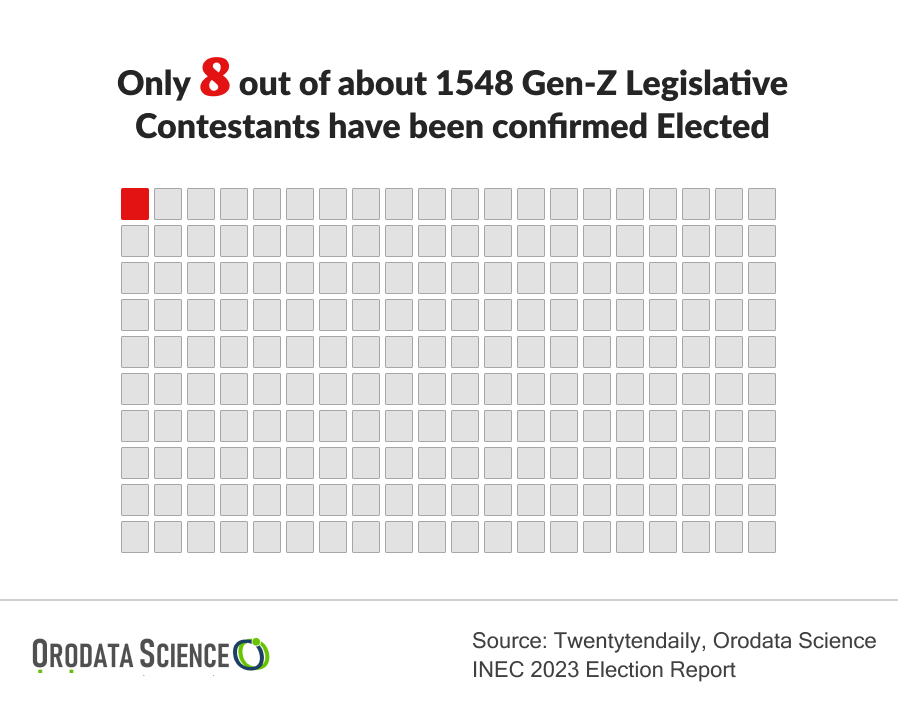
The two youngest among the elected GenZs are Rasheed Kashamu of the People’s Democratic Party in Ogun State and Rukayat Shittu of the APC in Kwara State, both 26 years old. Kashamu, who is the son of the late Senator Buruji Kashamu will be representing Ijebu North 1 in the Ogun State House of Assembly; while Shittu will be representing Onire/Owode in Kwara Assembly.
Another notable under-30 candidate who got elected in the last election is 29-year-old Yusuf Adebisi of the Ibadan Southwest 1 constituency in Oyo State. Although Adebisi is a returning member as he was first elected in 2019 when he was 25 years old. Adebisi who is a member of the PDP is the first child of the popular Fuji Musician, Taiye Akande Currency. It may interest you to know that Oyo State has the youngest House of Assembly Speaker in Nigeria, in the person of Hon. Debo Ogundoyin. He was elected Speaker in the pacesetter state at 32 in 2019.

Also on the list of GenZs who won state legislative seats in the 2023 election is APC’s 27-year-old Gaius Golkos in Gombe State. He was elected to represent the Pero Chonge constituency.
Others on the list are: 28-year-old Cyril Omini of the APC representing Yakurr 1 in Cross River State; 29-year-old Masud Abdulrahman representing APC and Babura constituency in Jigawa State; 28-year-old Nasko Abdulazeez Mohammed of the APC to represent Magama constituency of Niger State; and 29-year-old Bello Sanni also of APC, representing Mashi constituency in Katsina State. Sanni is also a returning member as he was first elected in 2019.

